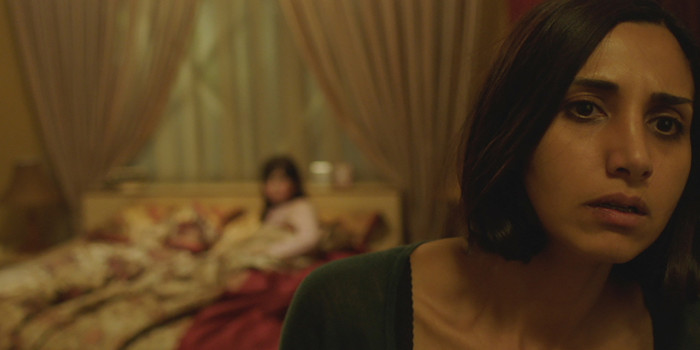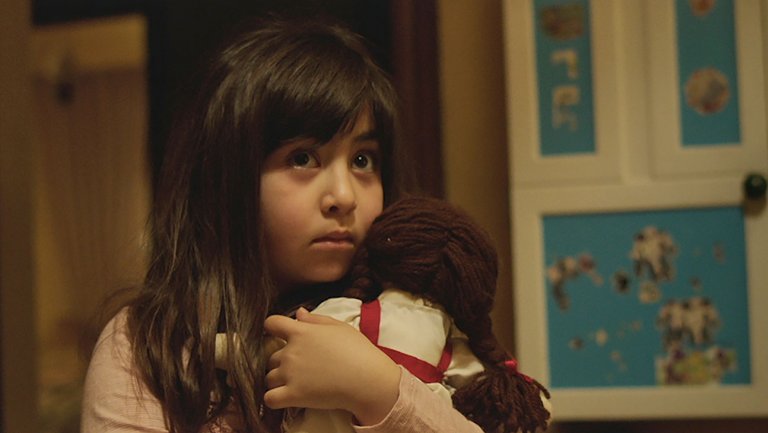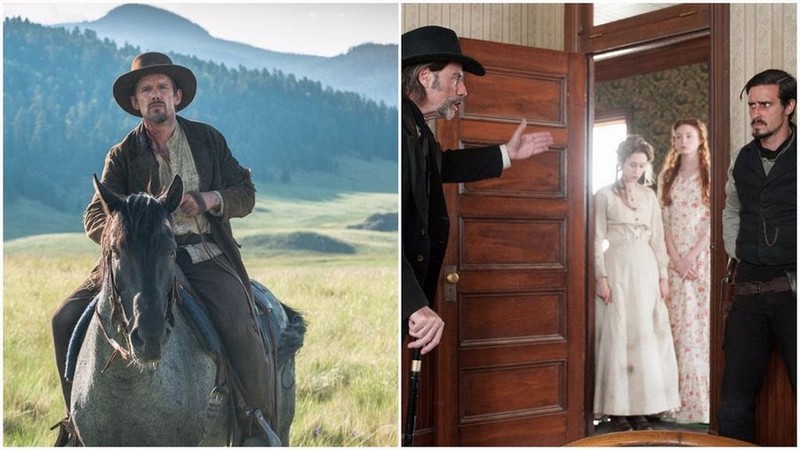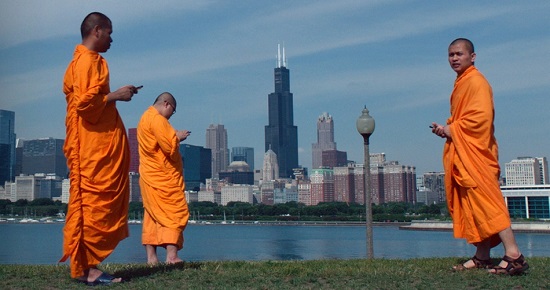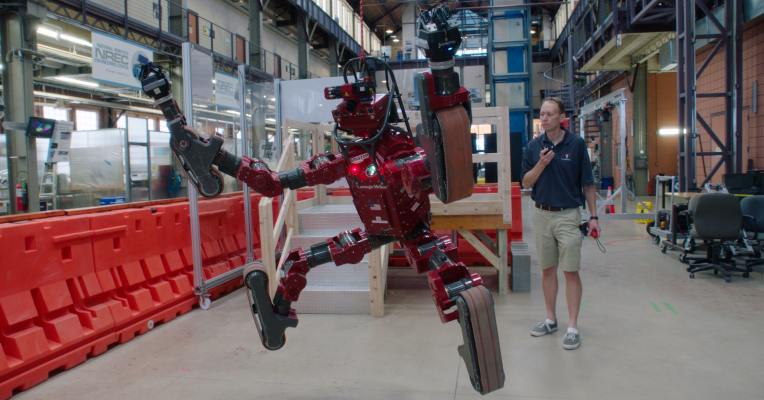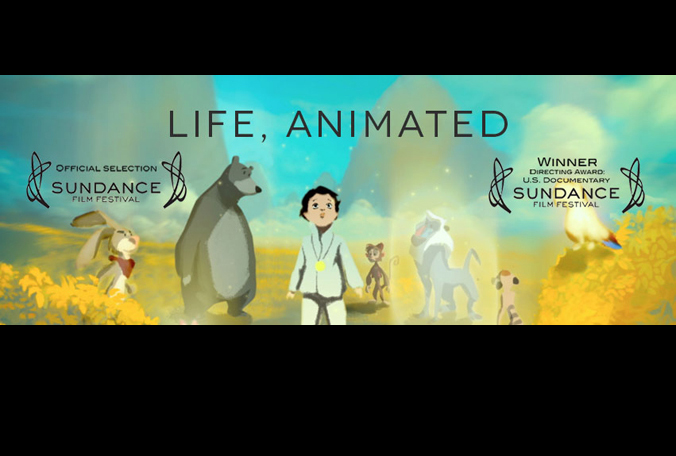Wiener-Dog
 Scott Pfeiffer
Scott Pfeiffer  Wednesday, July 13, 2016 at 12:35PM
Wednesday, July 13, 2016 at 12:35PM 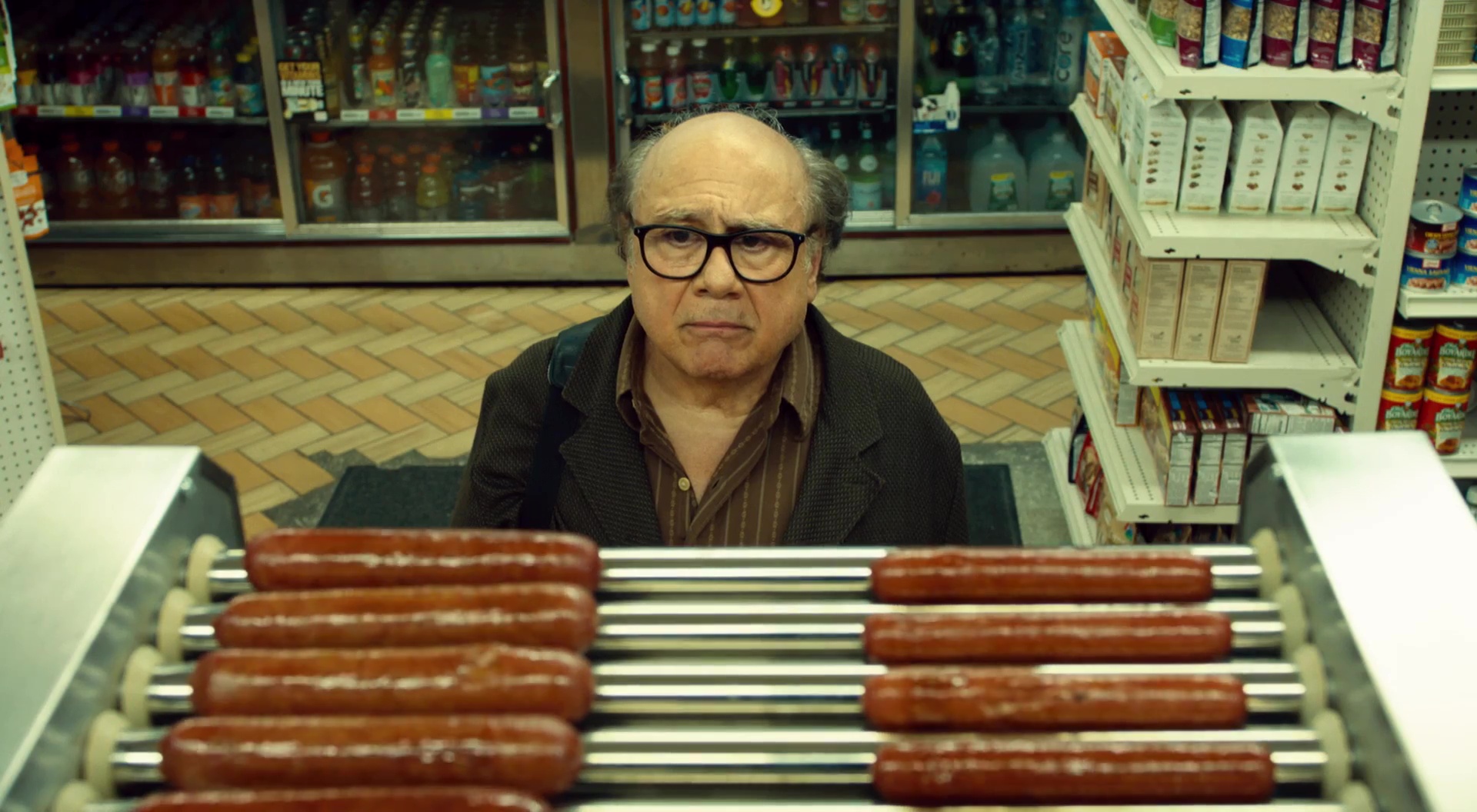
"I’m very thankful that I like laughing. It gives me great pleasure. When I'm feeling despondent or terrible things happen, it is for me a very powerful outlet. To me, the comedy in my movies is always wed to the pathos. They're inextricably entwined. That's why some audiences they may say, 'Oh, it's so funny,' and the other half is angry at the first half, like, 'Why are you laughing? This is not funny. This is sad and sorrowful.' I'm both, you know? I'm both audiences, but concurrently. It's all fraught with ambiguity."--Todd Solondz, in an interview with No Film School
This quote from Solondz describes practically word-for-word what happened at the screening we attended of his deadpan new film, "Wiener-Dog." (It occurs to me that, even more so than with most directors, seeing Solondz's films with an audience is a wholly different experience than seeing them on home video.) During the shocking, albeit somewhat telegraphed, penultimate shot of the movie--which I won't describe but which had Karolyn and me gawking at each other with mouths agape, rather pleasantly scandalized--laughter broke out in some quarters of the theater. Suddenly, a woman's voice pierced the darkness. How can you laugh? she cried out admonishingly. It's not funny! "This is what we've come to," she added in anguish.
I don't think Solondz would blame her. He is, of course, the purveyor of controversial fare like "Happiness" and "Storytelling" and "Palindromes," rather singularly dark comedies which finger the wounds of some of the most painful things that exist in life, such as pedophilia and rape. He insists his films do have a "moral center," even as "the act of laughing becomes a moral dilemma." His droll new one, "Wiener-Dog," one of his best, is many things: tender and sour, merciful and heartless--one moment we're face down in the doody, the next we're encountering moments of breathtaking beauty. In other words, it's a bit like life.
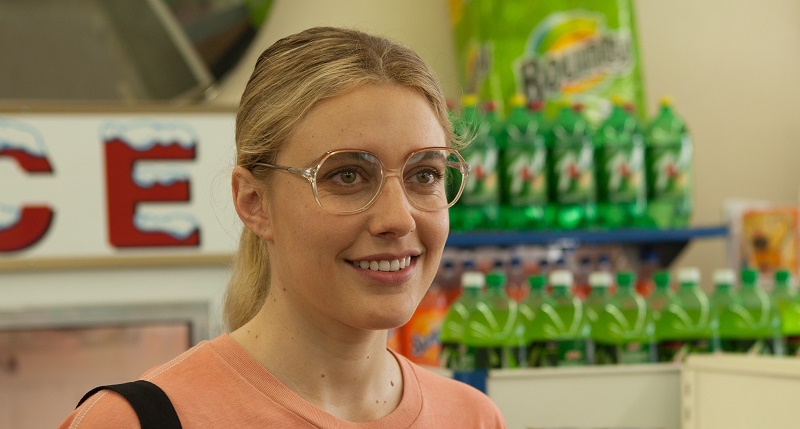
The "link" between its four stories (see what I did there?) is a Dachshund, and what creature could be more docile and powerless than these little sausage-shaped pooches? As the wiener-pup goes from home to home, Solondz spins jaundiced changes on the theme of mortality. Whatever the vicissitudes of her fate, Wiener-Dog looks on as if to say, well, I guess this is life now. Pooches, after all, take life as it comes, just like Bresson's soulful donkey Balthazar in "Au Hasard Balthazar," an acknowledged influence on Solondz. An innocent animal throws humanity's flaws and weaknesses into relief. Wiener-Dog can be "bad," but, unlike human beings, she hasn't the capacity to be evil or cruel.
In each tale, we meet the two types of Solondz characters: the satirical constructs, and the ones with whom we're meant to empathize.

After landing in the pound, Wiener-Dog's next stop is an unhappy family living in an arid modernist mansion. The parents are, frankly, insane--full of comically exaggerated rage. Their little boy, Remi (Keaton Nigel Cooke), is a cancer survivor (a fucking survivor, as his mom fiercely describes him). He likes to play dead to imagine what it would be like. (A shot of the boy lying in the grass plays like a wicked Mad magazine satire of "Boyhood.") His dad, a bombastic asshole embodied by Tracy Letts, brings Weiner-Dog home as a gift for Remi, which enrages his mom (Julie Delpy), and the pup is consigned to a cage in the garage. Remi falls instantly in love with her. Mother and son are close; in response to the boy's many questions about the universe, she regales the wide-eyed Remi--small, dark and haunted--with wildly inappropriate stories and lessons about the nature of animals and death. Her tales are a kind of loving abuse, but it's not quite clear what's being satirized here--a certain kind of American family? Ultra-blunt parenting? The way Remi's brush with death drove the parents mad?
As soon as Wiener-Dog and Remi are left alone, the boy frees the dog and they throw a glorious, anarchic free-for-all. As Wiener-Dog tears open a pillow and feathers fill the air, they leap about in slow motion. It's Solondz and cinematographer Ed Lachman's exuberant homage to Vigo's "Zero for Conduct." Laughing turns to crying, though, as Remi's ill-advised experiment with feeding the pooch a granola bar leads to an exquisite tracking shot by Lachman: a trail of diarrhea running down the driveway, scored to Debussy's "Clair de Lune." Traversing the streaks and glistening brown pools and globules, the shot seems to go on nearly as long as Godard's traffic-jam tracking shot in "Weekend."
For the next story, Wiener-Dog, now known as Doody--she even has her own irresistible, wistful theme--is adopted by none other than Dawn Weiner from 1995's "Welcome to the Dollhouse." That's right: even though we attended long-suffering Dawn's funeral at the outset of "Palindromes" (she committed suicide in college), she is now resurrected, in the person of a bespectacled Greta Gerwig. Gerwig's big, shy smile shows Dawn as open and kind. Her tormenter/crush, the bully Brandon McCarthy, is back, as well, now played by Kieran Culkin. They run into each other in a convenience store for the first time since high school. After lingering over Doody outside, Brandon invites her to hit the road with him to Ohio. They make a couple mysterious stops--first at a trailer, then a mansion. They pick up a hitchhiking, world-weary Mariachi band--a boy, his father, and his grandfather. They're full of ennui, and in a rather strange and beautiful scene they serenade Dawn back at the hotel. Finally, Dawn and Brandon (and Doody) arrive at the home of the one-time bully's brother and his wife, a happy, loving couple who happen to have Down Syndrome. There follows one of those strangely moving scenes that characterize Solondz's cinema at its best. As Brandon reveals to his brother the reason he's come, we begin to understand the home-life stresses that might have caused young Brandon to be a bully, and we see the loving bond between the brothers.
Next, there's a fun "intermission." Weiner-Dog goes on a little cross-country adventure, replete with her own Johnny Cash-like ballad. It's as big as a John Ford film.

The next story is an incisive satire of film school. (Here Solondz knows of what he speaks: he teaches in the belly of the beast, NYU.) We are invited to laugh at the gap between the identity-oriented politics of the modern world and the old-school screenwriting professor, Schmerz (Danny DeVito), a frustrated, aging, out-of-shape film described by his doctor as a "ticking time bomb." His only comfort in life is his Dachshund. Schmerz once wrote a movie, "Apricots"; he's got the framed poster on his wall. (In a nice touch, it's done in the Mad magazine/National Lampoon cartoon style of 70s/80s comedy posters.) His frustration mounts as agents give him the runaround and he must endure questions from the likes of a student (a spot-on Charlie Tahan) whose big idea is to make the first movie ever putting Green Arrow and Green Lantern together. Our emotional connection here, surprisingly, is with Schmerz, and it is the young, "progressive" students who are the satirical fodder, the ones who mercilessly deride the old-fashioned Schmerz. Schmerz is in the audience as a pretentious director (Kett Turton) returns to his alma mater to give a talk. Dripping contempt, he urges the students in attendance to drop out, then derides Schmerz by name, as well as the man's cherished screnwriting formula: "What if/Then what?" DeVito gives Schmerz real pathos and pain, a man with crushed dreams who only wanted to create something with all of life in it. (As I am not the first writer to point out, "schmerz" is the German word for "pain.")
The most remarkable story of all is the final one, with Ellyn Burstyn as gruff Nana and Zosia Mamet as her granddaughter who comes by for a visit. She arrives with her boyfriend, an artist called Fantasy (Michael James Shaw), a big African-American man in a preposterously flashy pink outfit. His art involves mounting dead animals (just don't say it's derivative of Damien Hirst!). Also here is Nana's stoic nurse, Yvette (Marcella Lowery). Together they endure their days, as they must. We infer that Nana's staring death in the eye, but not without a certain black humor: "Cancer" is the name she's given her Dachshund. She likes to sit in the garden with the pooch on her lap and rest. The scene is a showcase for Solondz's strengths as a writer and as a director of actors. So much is conveyed between the lines, in glances and timing: the young woman's essential kindness and openheartedness, the way that, while she may be there to exploit Nana, she really does love her, as well. The way the crusty Nana is quite aware she's being used, but is willing, even eager, to give, to help. Without a trace of sentiment, she even takes a leap of trust that might also be a leap of faith, a nod to the girl to go ahead and take it all and live her life, because she'll soon be gone and the girl's got a life to live. What wonderful work by Mamet--she's ashamed and hopeful, innocent and damaged, guileless below it all. After they leave, Nana rests in the garden with Cancer, and we get a breathtaking moment when visions of young ginger girls appear to her--Young Nanas, showing the way things might have been. A lifetime of regrets and acceptance. We've barely recovered from the laughs, tears and beauty of this scene when we get that shot I mentioned at the outset--the final outrage or a cosmic laugh, take your pick. Or rather both, and the natural conclusion. Almost: there's one more shot that is, somehow, the perfect capper.
People mustn't say Solondz's comedy is misanthropic. Crucially, he never, ever judges his characters. Even the cardboard satirical constructs, more "types" than people, come in for merely gentle mocking. (In fact, a lot of the time he's really ribbing "our" people--people with whom he and his audience could be presumed to side, politically speaking--so in that way we're just having a laugh at ourselves.) He's so good with actors in the "sincere" moments that critics might urge him to drop the satire altogether and go straight. I hope he doesn't. In his cinema, you can't have one without the other. His genre, after all, is not so much comedy/drama as comedy/pathos. Do see "Wiener-Dog," and laugh or cry (and wince and squirm) as you see fit. Or even be outraged--Solondz would understand.

Rating: ****1/2
Key to ratings:
***** (essential viewing)
**** (excellent)
*** (worth a look)
** (forgettable)
* (rubbish!!)












